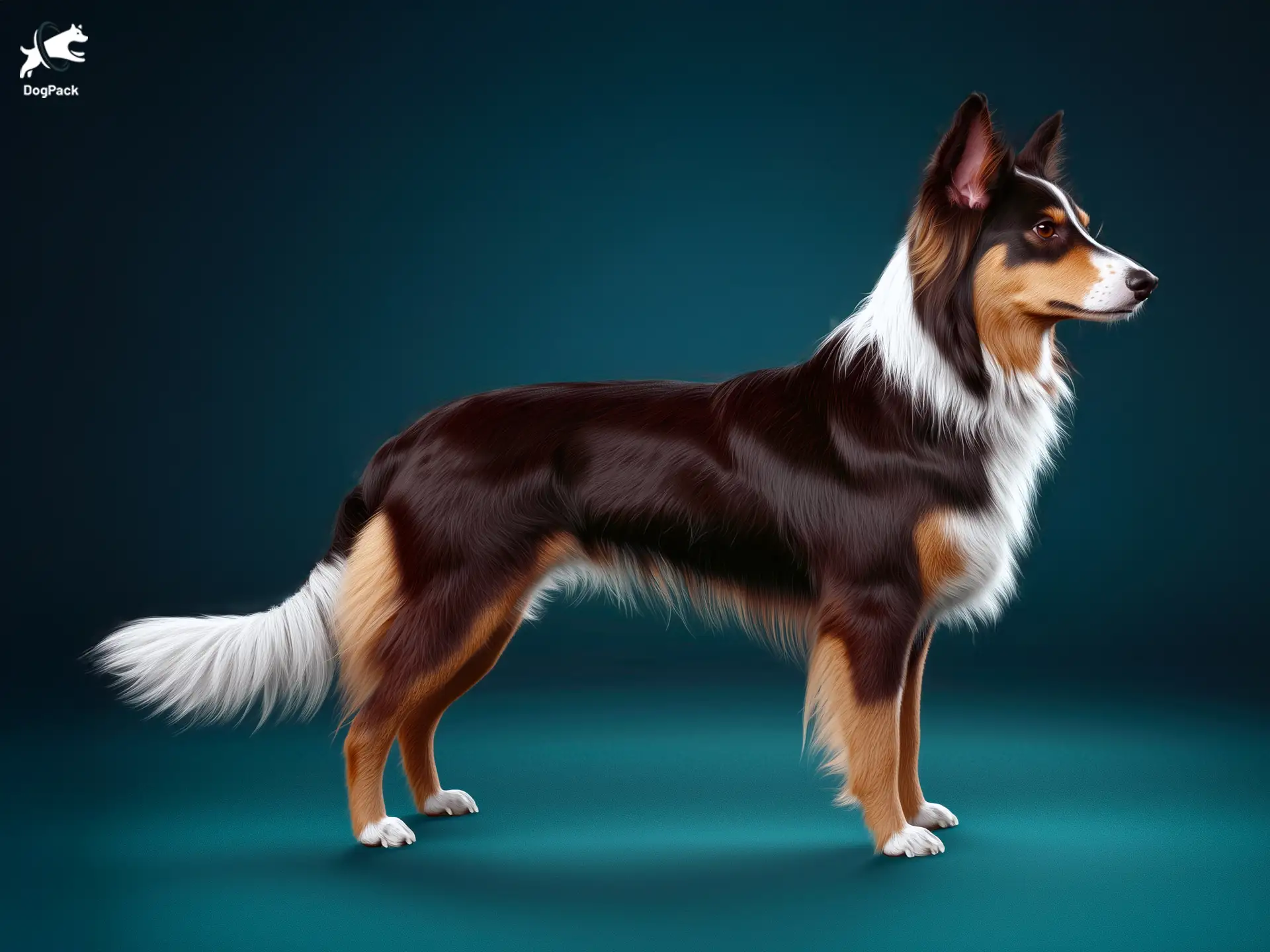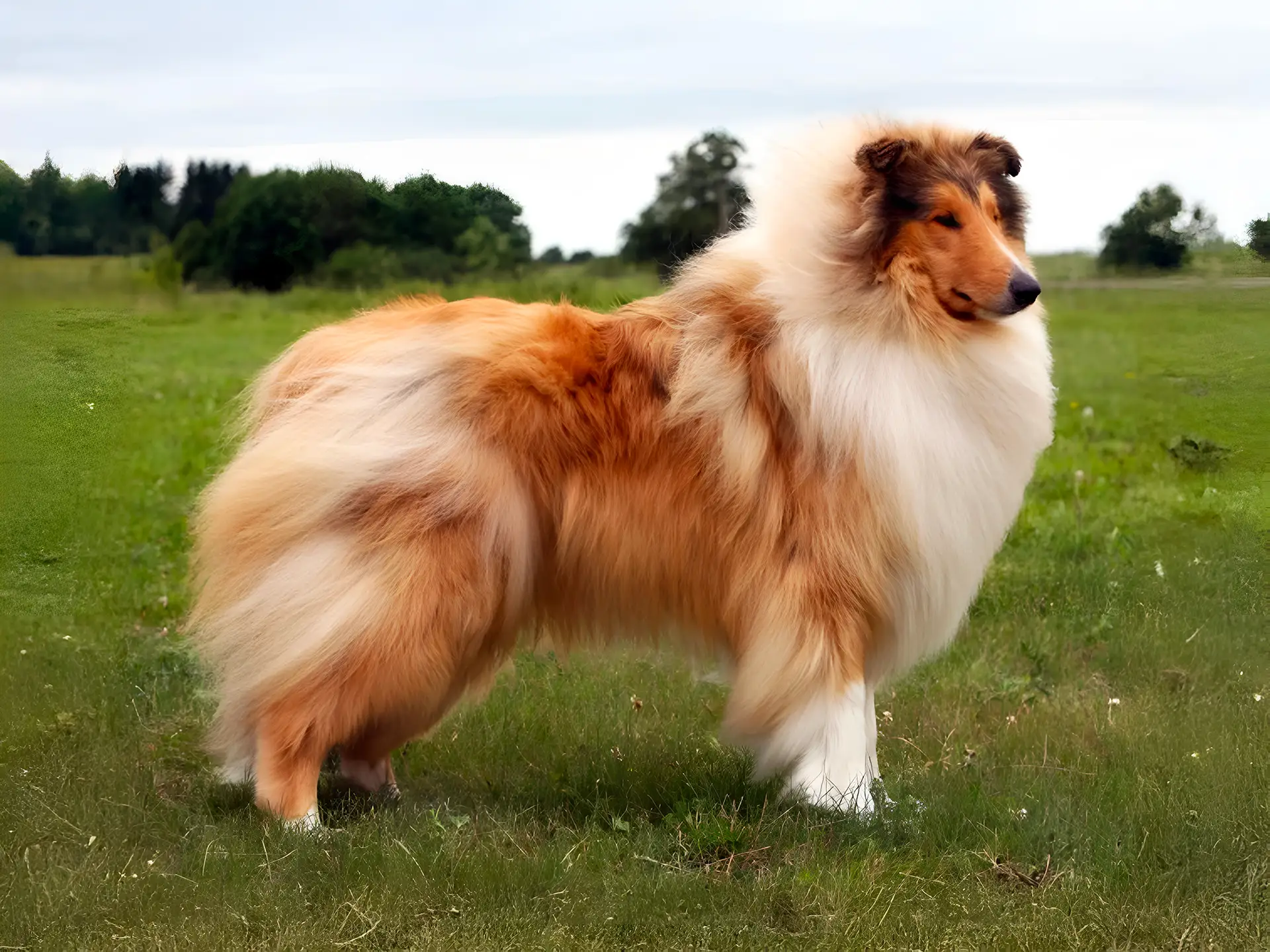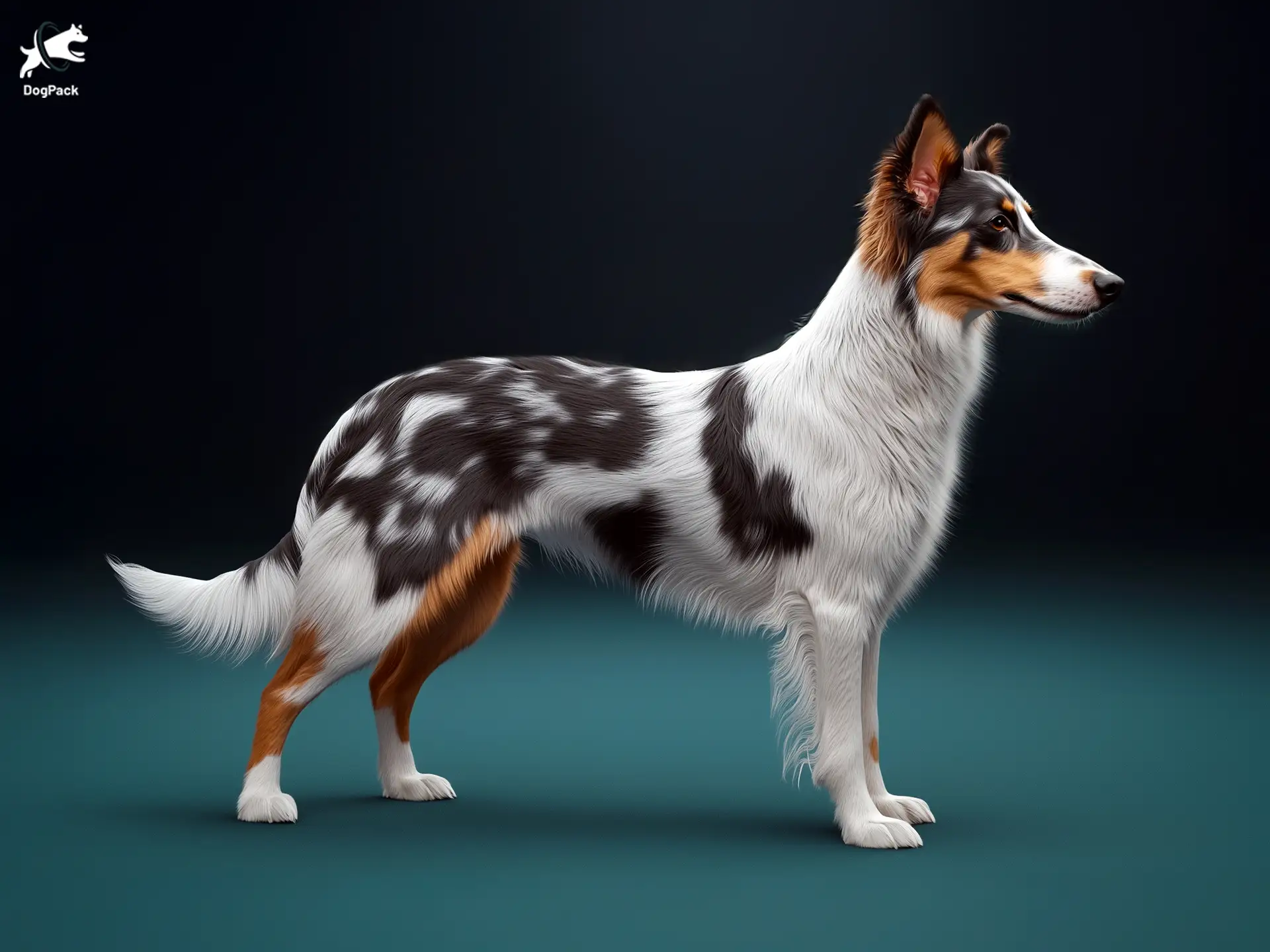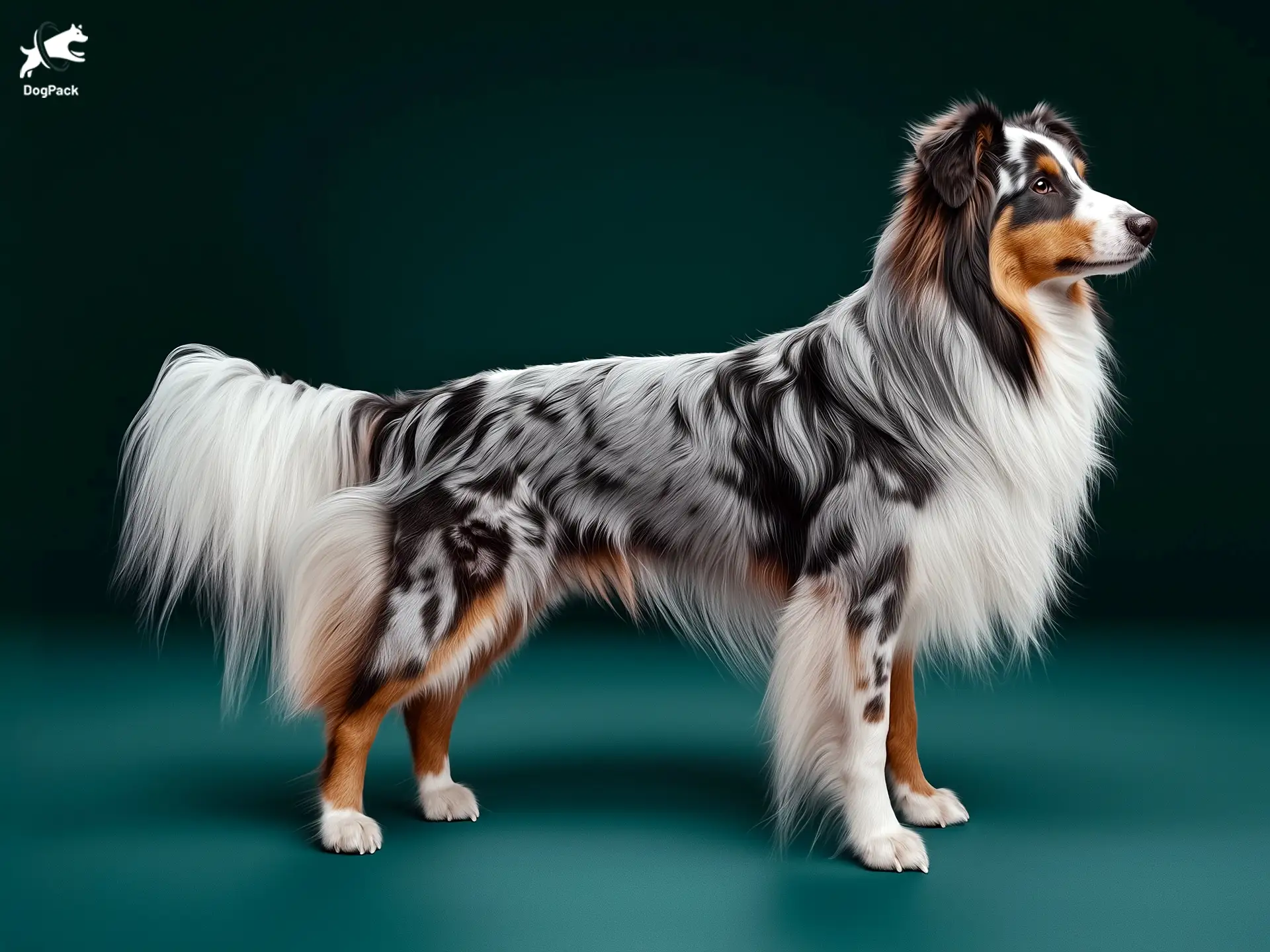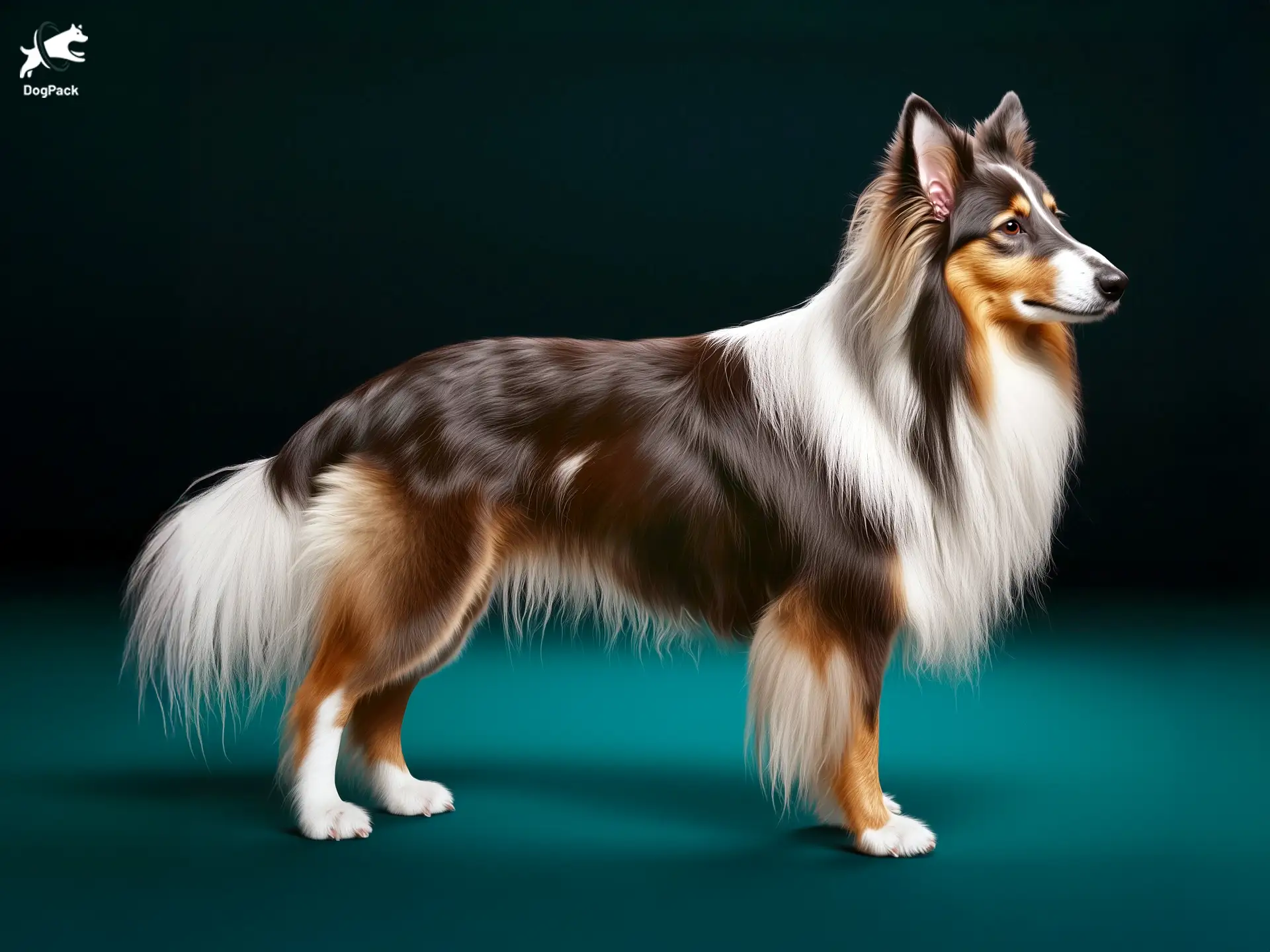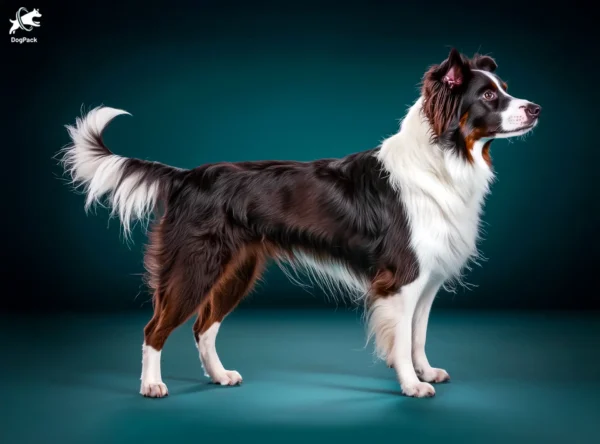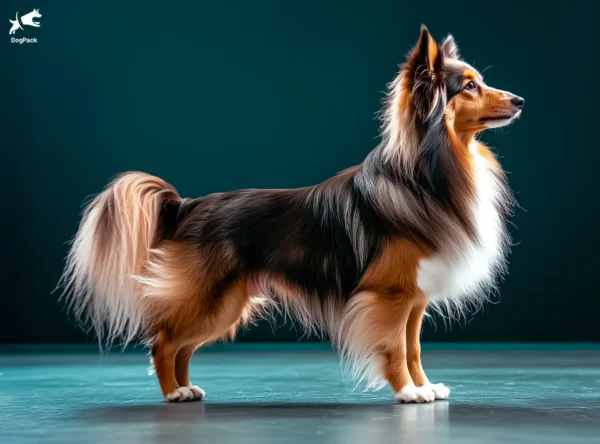Collie Dog Breed Info & Overview
The Collie is a breed that feels like an instant friend, known for its intelligence, loyalty, and classic good looks. Beyond being Lassie’s kin, Collies are energetic, family-oriented companions who thrive in active settings. With a herding background, they bring both a dedicated work ethic and a gentle heart, making them a beloved choice for families seeking a loyal and affectionate friend.
Characteristics
Pictures
Breed History
The Collie hails from the highlands of Scotland, where they were originally bred as herding dogs. Their keen intelligence and agility made them invaluable for managing sheep across rugged terrains. Queen Victoria’s fondness for the breed in the 19th century propelled them into the spotlight, increasing their popularity beyond working farms.
Over time, the Collie evolved into two main varieties: the Rough Collie with its luxurious long coat, and the Smooth Collie, boasting a shorter, dense coat. Both types share the same roots and were used interchangeably by shepherds. The breed gained international fame through literature and film, most notably with the character Lassie, cementing the Collie as a symbol of loyalty and bravery.
Today, Collies are cherished not just for their herding abilities but also as loving family companions. Their rich history reflects a journey from hardworking shepherd’s aide to beloved household pet, without losing the traits that make them unique.
Temperament, Personality
Collies are renowned for their gentle and affectionate nature. They form deep bonds with their families and are often exceptionally good with children. Their nurturing instinct, a remnant of their herding background, makes them protective yet kind-hearted companions.
Intelligence is a hallmark of the Collie, which means they thrive on mental stimulation. They’re quick learners and enjoy activities that challenge their minds. However, their sensitivity means they respond best to positive reinforcement and gentle guidance.
Strangers may be met with cautious friendliness, but once trust is established, a Collie can be as welcoming as with family members. Their sociable demeanor extends to other pets as well, making them a harmonious addition to multi-pet households.
Physical Characteristics
Elegance and grace define the Collie’s appearance. They have a well-proportioned body, with males typically larger than females. Their expressive almond-shaped eyes exude intelligence and warmth, often reflecting their attentive nature.
The breed comes in two coat varieties: Rough and Smooth. The Rough Collie sports a long, lush double coat that flows as they move, while the Smooth Collie has a shorter, dense coat that lies close to the body. Common coat colors include sable and white, tri-color, blue merle, and white.
Their tails are moderately long and carried low unless excited, when they may raise it slightly. The Collie’s overall physique combines strength with agility, a testament to their herding heritage.
Health Issues
While generally a healthy breed, Collies are predisposed to certain genetic health issues. Collie Eye Anomaly (CEA) is a congenital condition affecting eye development, which can lead to vision impairment. Regular veterinary eye exams are crucial for early detection and management.
Another concern is Progressive Retinal Atrophy (PRA), a degenerative eye disorder that can cause blindness. Hip dysplasia, though less common, can also affect Collies, leading to joint discomfort and mobility issues. Responsible breeders often screen for these conditions to minimize risks.
Maintaining regular vet check-ups and being aware of these potential health issues can help ensure your Collie leads a healthy, active life. A balanced diet and appropriate exercise also play vital roles in their overall well-being.
Grooming Needs
Grooming a Collie requires commitment, especially for the Rough variety. Their long double coat can be prone to matting if not brushed regularly. A thorough brushing two to three times a week helps keep their coat in top condition and reduces shedding around the home.
The Smooth Collie, while having shorter hair, still benefits from regular grooming to remove loose hairs and keep their skin healthy. Both varieties experience seasonal shedding periods, during which daily brushing might be necessary.
Beyond coat care, Collies need routine maintenance like nail trimming, ear cleaning, and dental hygiene. Regular baths are needed but should not be too frequent to avoid stripping natural oils from their skin.
Exercise Requirements
An active mind and body are essential for a happy Collie. They enjoy daily walks, playtime in a secure yard, and activities that engage their herding instincts. Aim for at least 1–2 hours of exercise per day to keep them physically fit and mentally stimulated.
Collies excel in dog sports like agility, obedience, and herding trials. These activities not only provide exercise but also strengthen the bond between you and your dog. Puzzle toys and interactive games can also help satisfy their intellectual curiosity.
Without sufficient exercise, a Collie may become bored and develop unwanted behaviors. Regular activity ensures they remain the well-behaved, delightful companions they’re known to be.
Training Tips
Training a Collie can be a rewarding experience due to their high intelligence and eagerness to please. They respond exceptionally well to positive reinforcement techniques, such as treats, praise, and play. Harsh methods can backfire, given their sensitive nature.
Consistency is key when training. Start with basic obedience commands and gradually introduce more complex tasks. Early socialization is important to help them become well-rounded adults comfortable in various environments.
Consider enrolling your Collie in obedience classes or dog sports to channel their energy productively. Their quick learning ability often makes them standouts in such settings, boosting their confidence and yours.
Nutrition, Diet
Feeding a Collie requires attention to their specific energy needs. A high-quality dog food formulated for medium to large breeds is recommended. Portion sizes depend on their age, weight, and activity level, but generally, they consume about 2 to 2.5 cups of dry food per day, split into two meals.
Collies can be prone to bloat, so avoid feeding large meals in one sitting and discourage rapid eating. Foods rich in omega-3 fatty acids can benefit their skin and coat health, especially important for the Rough Collie.
Always consult your veterinarian to tailor a diet plan suited to your Collie’s individual needs. Monitoring their weight helps prevent obesity, which can exacerbate health issues like hip dysplasia.
Adoption, Breeders
If you’re considering adding a Collie to your family, seek out reputable breeders who perform health screenings on their dogs. This helps ensure you’re getting a healthy puppy with a good temperament. The Collie Club of America is an excellent resource for finding certified breeders.
Adoption is another wonderful option. Many Collie rescue organizations work tirelessly to rehome dogs in need. Websites like Petfinder list Collies available for adoption in your area.
Always ask for health records and, if possible, meet the puppy’s parents to gauge temperament. Responsible sourcing sets the foundation for a long, happy relationship with your Collie.
Family Pet?
Collies make exceptional family pets, known for their gentle demeanor and protective instincts. They are particularly good with children, often displaying patience and a nurturing attitude. Their playful nature makes them excellent playmates for kids of all ages.
They generally get along well with other pets, especially when raised together. Early socialization enhances their ability to interact positively with other animals. However, their herding instincts might lead them to try to herd smaller animals or children, a behavior that can be managed with proper training.
Their alertness also makes them good watchdogs, though they’re not typically aggressive. A Collie’s blend of affection and vigilance contributes to a harmonious household dynamic.
Right For You?
Before bringing a Collie home, consider your lifestyle and environment. They thrive in homes where they have space to move and owners who can dedicate time to their exercise and grooming needs. Apartment living may be challenging unless you commit to ample outdoor activities.
Collies are best suited for owners who appreciate an intelligent, active dog. If you’re looking for a loyal companion who enjoys both playtime and relaxation with the family, the Collie could be an excellent match.
Their need for companionship means they don’t do well when left alone for long periods. If your schedule allows you to spend quality time with your pet, a Collie can become a cherished member of your family.
Conclusion
The Collie is a remarkable breed that combines intelligence, loyalty, and a gentle spirit. Their rich history as herding dogs contributes to their strong work ethic and affectionate nature. Whether participating in dog sports or enjoying family time, they bring joy and dedication to every aspect of life.
If you’re prepared to meet their grooming and exercise needs, the Collie can be a wonderful addition to your home. Their ability to bond deeply with their families makes every moment spent together special. Could the Collie be the companion you’ve been searching for?
FAQs
-
Why do some Collies exhibit “staring” behavior?
Collies may engage in a focused “stare” as part of their herding instincts. This intense gaze is a natural trait they use to control livestock but may also appear during play or when they’re concentrating on commands.
-
Do Collies need variety in their daily routine?
Collies thrive on mental stimulation, so varying their routine with new activities, toys, or tricks can prevent boredom. While they appreciate a basic structure, incorporating novelty keeps their active minds engaged and fulfilled.
-
How do Collies typically respond to young children?
Collies are generally gentle and patient with young children, but their herding instincts might lead them to gently “guide” kids. With early socialization and supervised interaction, they can be excellent family pets, adapting well to children’s energy.
-
What’s the best way to manage a Collie’s seasonal shedding?
Collies have a dense double coat and will shed heavily in spring and fall. Using a de-shedding brush daily during these times can help manage loose fur, keep their coat healthy, and reduce shedding around the home.
-
What’s a good way to mentally stimulate a Collie indoors?
Collies enjoy mental challenges like puzzle toys, hide-and-seek, and obedience games. Activities that allow them to use their problem-solving skills indoors help prevent boredom and keep their minds sharp when outdoor play isn’t possible.
Breed Ratings
Collies are highly intelligent and quick learners, making training a rewarding experience.
They enjoy playtime and are enthusiastic participants in family activities.
With moderate to high energy, Collies need regular exercise to stay content.
They shed heavily, especially the Rough Collie, requiring consistent grooming.
Their herding background means they have a low prey drive but may herd small animals.
Grooming can be time-consuming due to their thick double coat.
Eager to please and intelligent, they respond well to positive training methods.
Collies prefer company and may become anxious if left alone too long.
They can be vocal but can be trained to minimize unnecessary barking.
Drooling is minimal, not a common issue with this breed.
Generally friendly with other dogs when properly socialized.
Mostly healthy but prone to specific genetic conditions; regular vet care is important.

